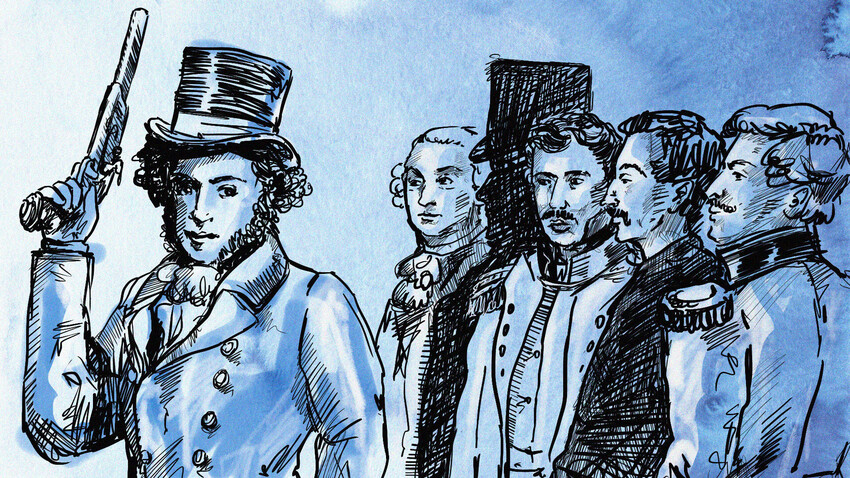
Duels were an integral part of Pushkin's life and common for his era, even though they had been outlawed. Philologist Mikhail Seleznyov wrote that he counted 26 duels and challenges in his biography of the poet. These are duels about which there are written accounts; though no one can be 100% certain that they in fact happened, or were fiction. But there’s no doubt Pushkin fought very often. Why so?
"A very young man, thin, of small stature, curly-haired, with an Arabian profile, in a tailcoat" – this is how 20-year-old Pushkin is described by the writer Ivan Lazhechnikov. The poet came to the house where Lazhechnikov shared an apartment with Major Denisiewicz, with whom Pushkin had a quarrel in one of St. Petersburg's theaters. Pushkin wasn’t alone; he was accompanied by his seconds – two officers of the Imperial guard.
Pushkin invited displeasing looks from many in the theater because he, a young man and a civil servant, behaved defiantly, which incited the major's belligerent remarks. Denisiewicz thought that he would simply reprimand this young arrogant nobleman, but in fact, the situation spiraled out of control.
"You read these admonitions to me yesterday in front of many listeners; I am no longer a schoolboy, and I have come to talk to you otherwise," Pushkin said to the major. "I cannot fight with you," replied Denisiewicz; "you are a young man, an unknown man, and I am a staff officer.” At this point, the two Guardsmen who had been with Pushkin, laughed. "I am a Russian nobleman, Pushkin; my companions will testify to that, and therefore you will not be ashamed to deal with me," replied the poet.
That time, the quarrel ended with reconciliation – Lazhechnikov, understanding who was in front of him, persuaded the Major to apologize. It is clear from this story that Pushkin did not tolerate any abuse, which often arose because of his youth, civilian clothes and small stature. This is why he often was prone to dueling in order to settle disputes. We will now tell of those that ended in actual duels. The first happened about the same time as the argument with Denisiewicz.
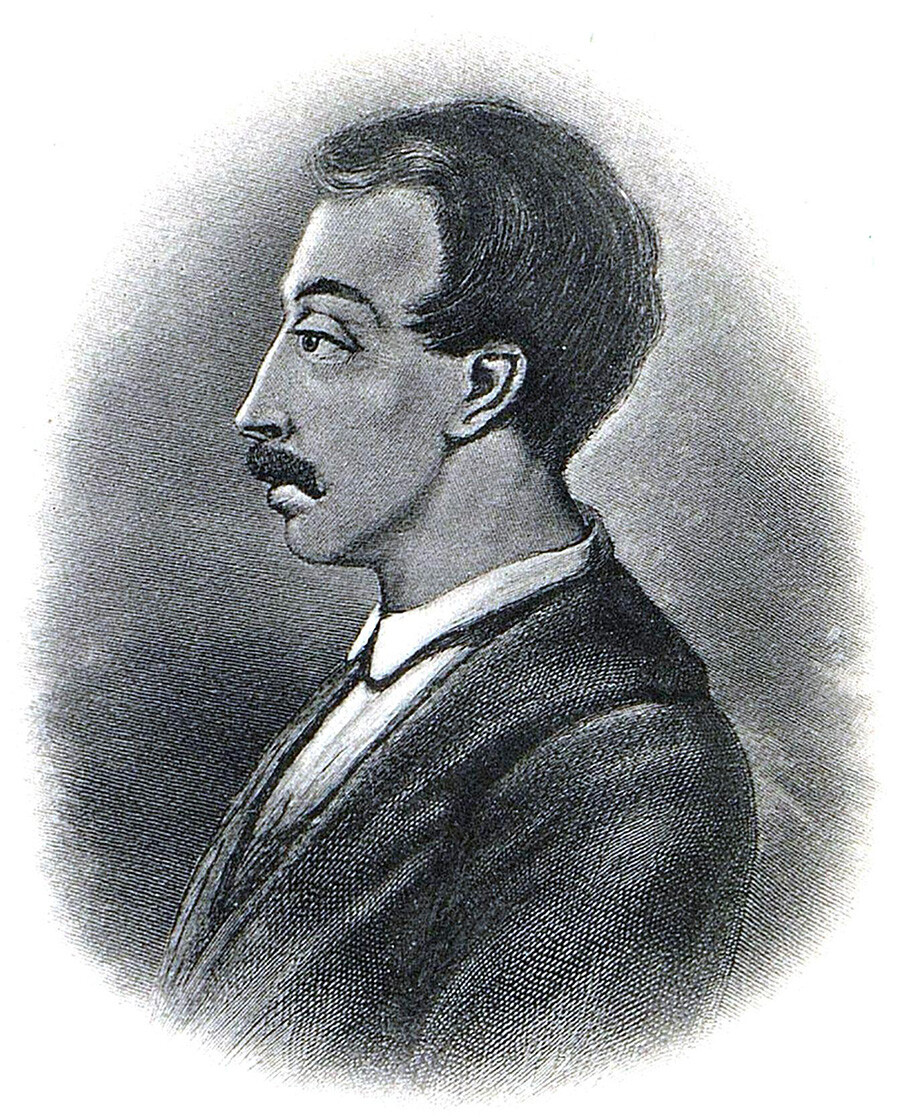
Wilhelm Küchelbecker (1797 – 1846)
Legion MediaPushkin's Lyceum friend Wilhelm Küchelbecker (1797 – 1846) was a very touchy young man and, as a fellow student Modest Korf wrote, was "the subject of constant and unremitting ridicule of the entire Lyceum." (Imperial Lyceum in Tsarskoye Selo, where Pushkin, Küchelbecker, and many other noble young men studied).
Pushkinologist Peter Bartenev wrote that Küchelbecker often went to the famous poet Vasily Zhukovsky and annoyed him with his poems. Once Zhukovsky was invited to a literary evening, but declined: "I had upset my stomach the day before, besides, Küchelbecker came, so I stayed home," said the poet. Pushkin immediately composed an epigram: "I ate too much at supper, // And Yakov locked the door inopportunely. // So I was, my friends, // Both Küchelbeckerish and nauseating!" (Yakov was the name of Vasiliy Zhukovsky's room-servant).
The new word "Küchelbeckerish" quickly spread around the Lyceum. Wilhelm was furious and demanded a duel. Pushkin's friend Nikolay Markevich recalled: "It was winter. Küchelbecker shot first and missed. Pushkin threw his gun and wanted to embrace his friend, but he frantically shouted: 'shoot, shoot!' Pushkin hardly persuaded him that it was impossible to shoot because the snow had packed into the barrel. The duel was postponed, then they reconciled.”
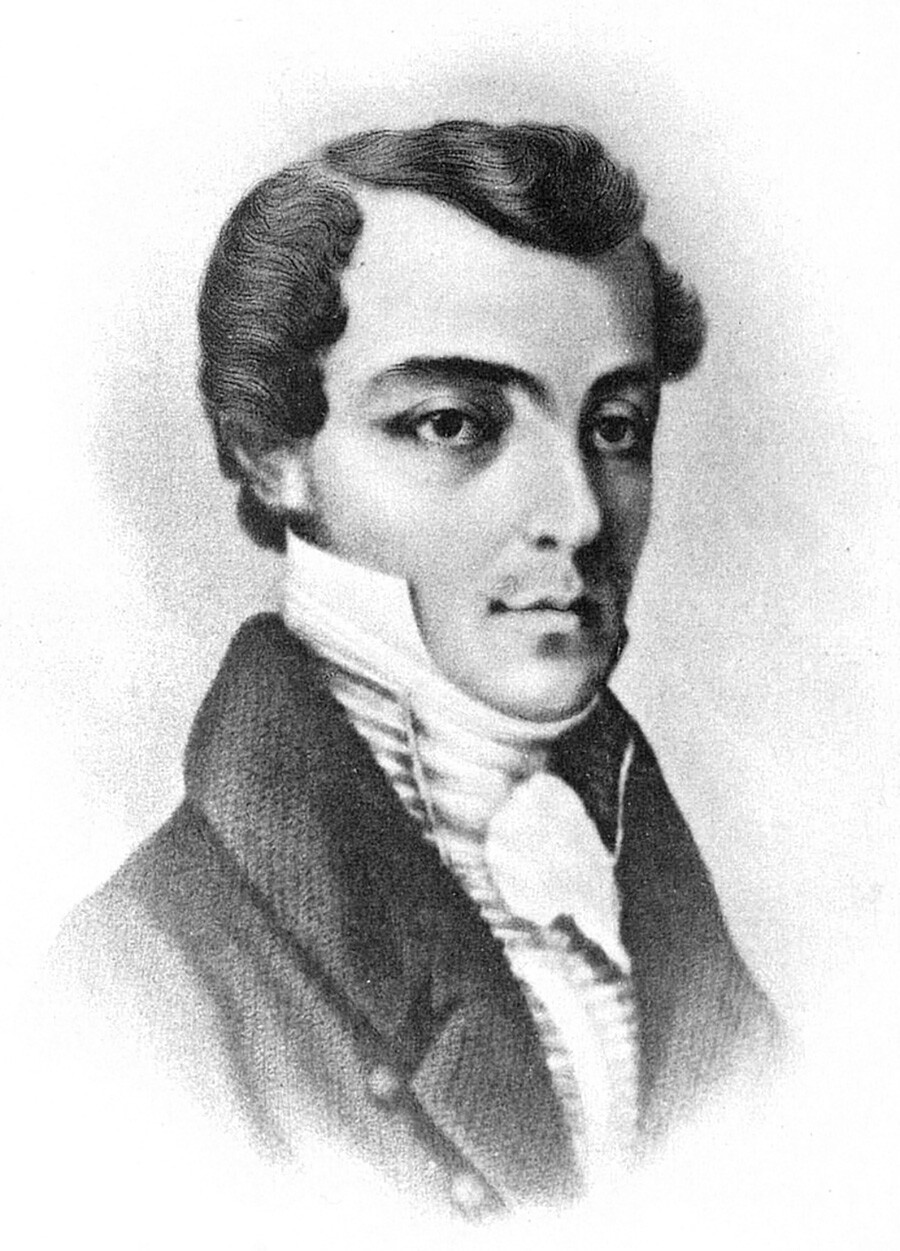
Kondraty Ryleyev (1795 – 1826)
Public DomainIn January 1819 someone started a rumor in the St. Petersburg salons that Pushkin had been whipped in the secret office of the Ministry of Internal Affairs for his anti-government poems. This rumor was spread, as it turned out later, by the famous duelist and hooligan Count Fyodor Tolstoy. Not knowing who was the author of the gossip, Pushkin challenged to a duel someone who was known to have helped spread this rumor.
The historical sources have not preserved the name of Pushkin’s opponent because during Nicholas I’s reign dueling was a criminal offense and therefore, the belligerents tried to keep secret any such confrontation. However, in this case, it’s believed the opponent was Pushkin’s friend Kondraty Ryleyev (1795 – 1826), who later became a Decembrist and was hanged.
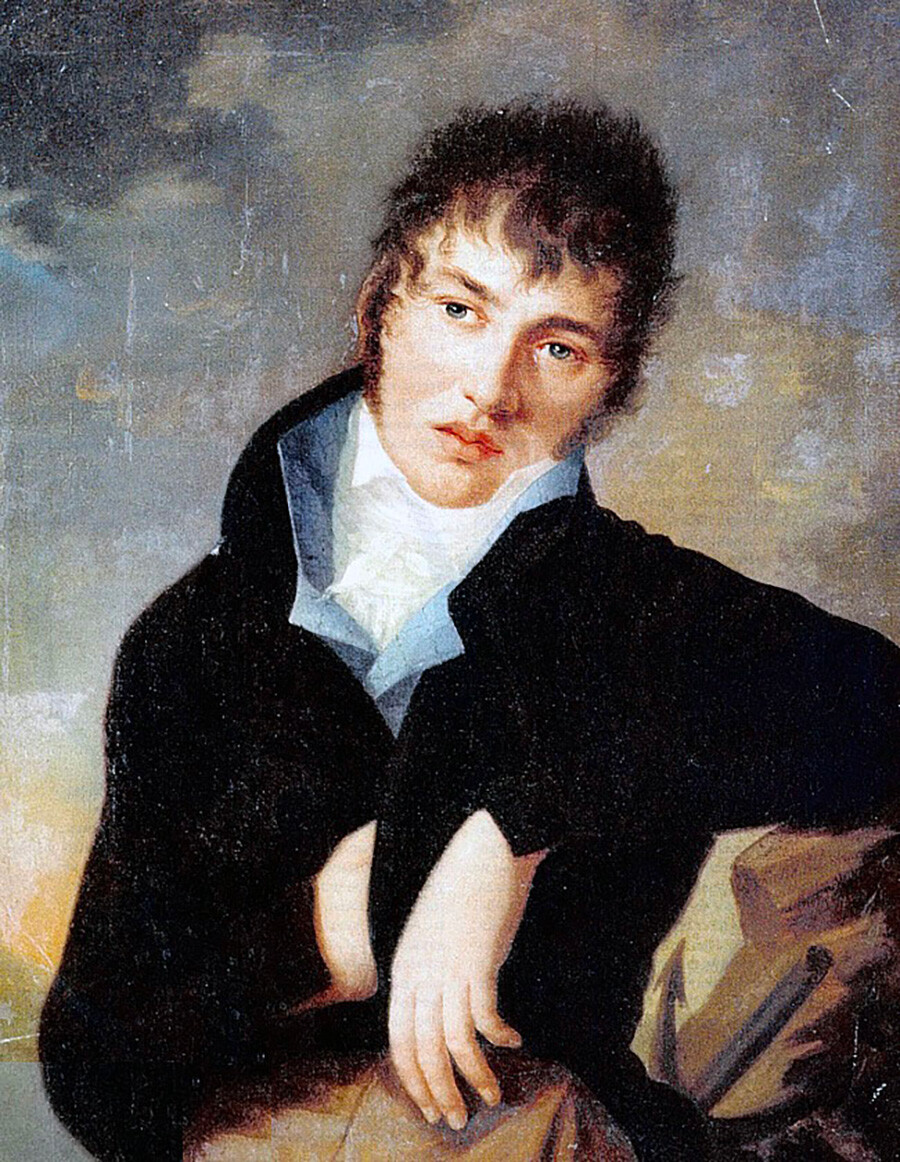
Fyodor Tolstoy (1782 – 1846)
Leo Tolstoy MuseumOnly fragmentary notes about the duel remain: "There were rumors that he was whipped in the Secret Office, but this is nonsense. In St. Petersburg he had a duel for it," wrote Pushkin's friend Colonel Fyodor Luginin. Pushkin only seven years later, in 1826, learned who was the source of the gossip, and again seriously prepared for a duel – Fyodor Tolstoy was known as an excellent marksman who had put down more than one rival. Fortunately, the opponents reconciled before the duel. Subsequently, Tolstoy performed the role of matchmaker for Pushkin and his wife, Natalia Goncharova.
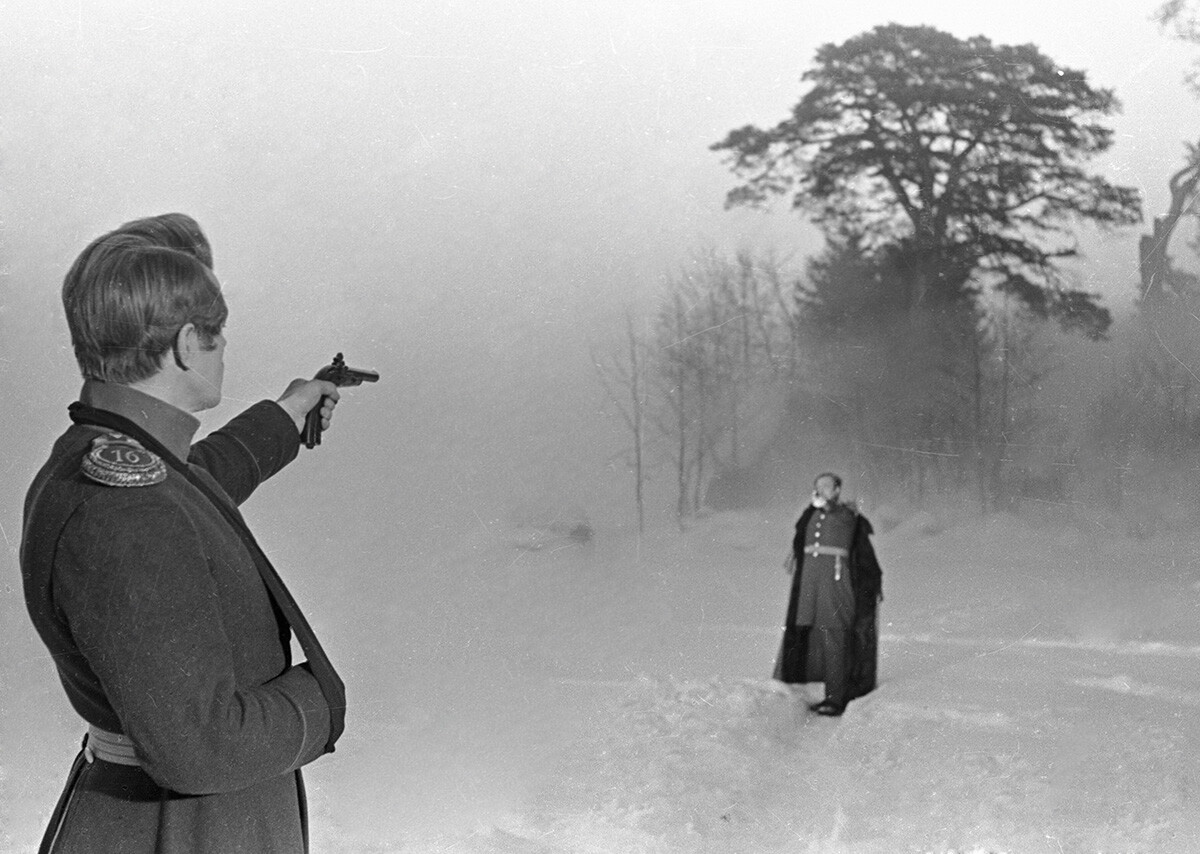
A still from Northern Story ("Severnaya povest") movie, 1960. Oleg Strizhenov (L) as officer Pavel Bestuzhev.
SputnikThe clash with Colonel Semyon Starov was the longest of Pushkin's duels. It took place on January 5, 1822 in Kishinev, where the poet had been exiled "for civil service" – in fact, this was a punishment for his irreverent epigrams and poems about Emperor Alexander.
A skirmish between the poet and some young officer took place over the right to order orchestra music in the assembly hall, where Kishinev's noble society spent time. After Pushkin's order of a mazurka, an unknown officer demanded that the orchestra play a quadrille. The poet, laughing, again ordered the orchestra to play the mazurka. After the dance, Semyon Starov, colonel of the regiment to which the young officer belonged, came up to Pushkin and said that he had insulted his subordinate and demanded an apology. The conversation ended in a challenge to a duel.
They met the next morning in the countryside near Kishinev. Vladimir Gorchakov, Pushkin's friend, recollected: "When they arrived at the place of the duel, a snowstorm with a strong wind prevented them from aiming: the enemies each fired a shot and both missed; the seconds proposed postponing the duel until another day, but the enemies with equal equanimity demanded a repeat; they loaded their pistols again – another shot and another missed shot. The duel was postponed until another day, but the next day the opponents reconciled.”
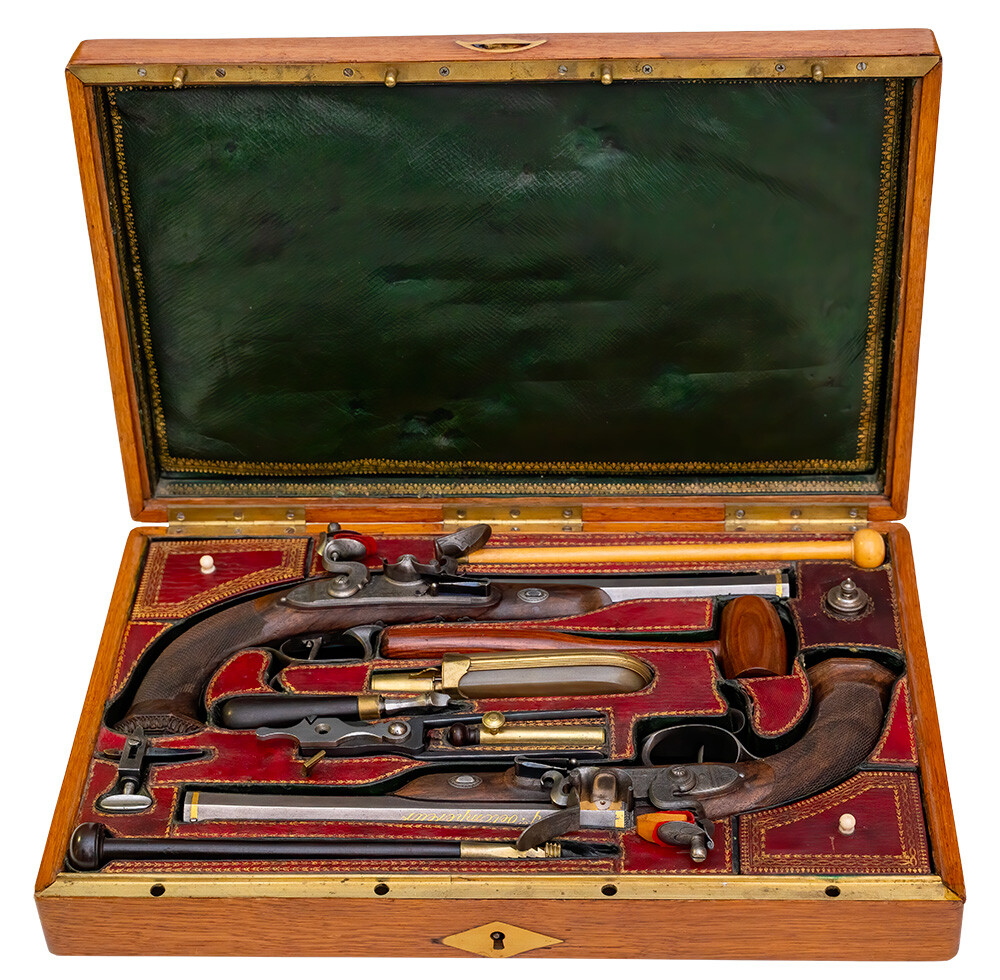
A pair of dueling pistols from the workshop of Jean Lepage (1779–1822), a well-known French gunsmith
State Historical MuseumAlexander and Kirill Zubov were descendants of one of the Russian Empire’s most influential families. Their uncle, Platon Zubov (1767–1822), was the last favorite of Catherine the Great, and their father was an accomplice in the murder of Paul I. In the summer of 1823, both brothers in the rank of sergeant majors were sent to Kishinev, where they met Pushkin. The quarrel occurred at a card table.
Peter Bartenev wrote: "Pushkin once happened to play with one of the Zubov brothers – an officer of the General Staff. He noticed that Zubov played dirty, and after losing to him, at the end of the game very indifferently and with laughter began to say to the other players that a decent man should be allowed not to pay losses to such an obvious swindler.” These words were heard, an explanation demanded, and Zubov challenged Pushkin to a fight. The opponents went to a vineyard outside Kishinev.
“Pushkin was not easily frightened,” Bartenev wrote. “He was brave by nature and tried to keep up this feeling. Pushkin came to the duel with Zubov with a peaked cap full of freshly picked cherries and had breakfast with them while he was shooting. Zubov shot first but missed the target. 'Are you satisfied?' Pushkin asked him, refraining from shooting (it was his turn). Instead of demanding a shot, Zubov rushed in with a hug. 'This is unnecessary,' Pushkin remarked to him, and without firing, he departed."
A few years later Pushkin used this incident as inspiration for his story The Shot: "He was under the gun, choosing from a cap of ripe cherries and spitting out the stones that drifted up to me. His indifference infuriated me.”
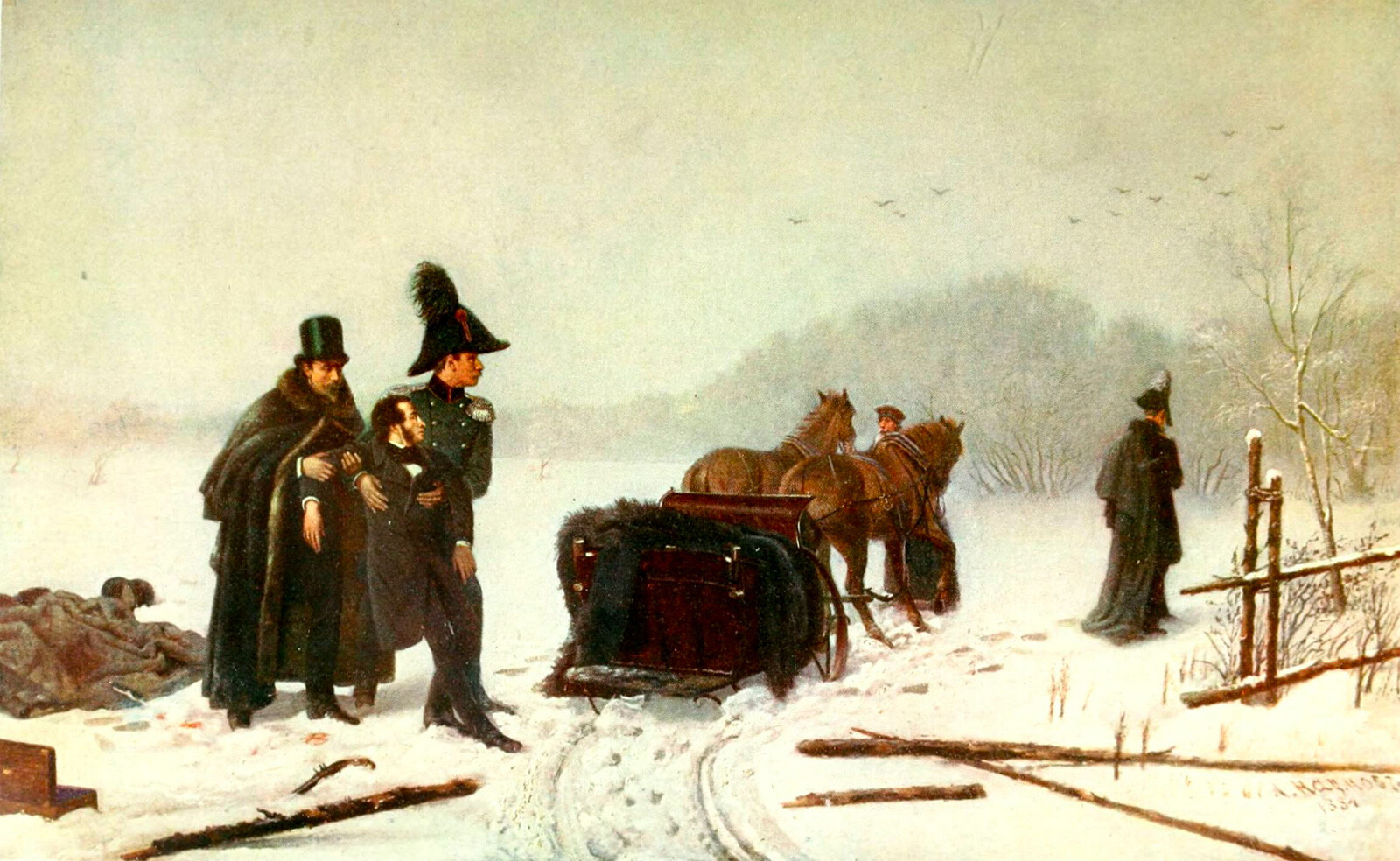
"Pushkin's duel with Dantes," by A. Naumov, 1884.
Public DomainThe roots of Alexander Pushkin's last duel, which turned out to be fatal for him, also owe to the spreading of malicious rumors. In this case, they concerned Pushkin's wife, Natalia Goncharova, and the rumors were spread by Georges Dantes, a Russian army officer and Pushkin's brother-in-law. Dantes was married to his wife's older sister, Catherine Goncharova. Despite the kinship of the opponents, the duel took place. That fateful day is described in detail in our separate article.
If using any of Russia Beyond's content, partly or in full, always provide an active hyperlink to the original material.
Subscribe
to our newsletter!
Get the week's best stories straight to your inbox